Uganda beckons adventurous travelers with promises of mountain gorillas, thundering waterfalls, diverse wildlife, and warm cultural encounters. While organized tours offer convenience, renting a car in Uganda unlocks unlimited freedom to explore at your own pace, discover hidden gems, and create truly personalized African adventures. This comprehensive guide provides everything you need to know about car rentals in Uganda – from choosing the perfect vehicle to navigating rental agreements, understanding local driving conditions, and maximizing your adventure potential.
Why Rent a Car in Uganda?

Car rental in Uganda represents more than just transportation – it’s your ticket to authentic African exploration. Unlike many safari destinations where self-drive options are limited, Uganda welcomes independent travelers with open roads, accessible national parks, and infrastructure that supports self-guided adventures.
Renting a car provides unmatched flexibility to adjust your itinerary based on weather, wildlife movements, or simply your mood. Spot elephants crossing the road? Stop and watch. Discover a vibrant local market? Pull over and explore. Find a perfect sunset viewpoint? Set up your camera and capture the magic. These spontaneous moments often become the most treasured travel memories.
Financial benefits also make car rental attractive. For couples, families, or small groups, rental costs typically prove significantly lower than equivalent guided safari packages, especially for longer trips. You control accommodation choices, dining options, and activity selections, allowing budget allocation that matches your priorities perfectly.
Understanding Uganda’s Car Rental Landscape
The Uganda car rental industry has evolved significantly over the past decade, with increasing numbers of reputable companies offering diverse vehicle options and professional services. The market includes international chains, established local operators, and specialized safari rental companies, each serving different traveler needs and budgets.
Most rental companies concentrate operations around Kampala and Entebbe Airport, though some offer delivery services to hotels or other locations. The industry operates year-round, though demand peaks during dry seasons when road conditions optimize and wildlife viewing improves.
Quality standards vary considerably between operators, making research and comparison essential for successful rental experiences. Professional companies maintain well-serviced vehicles, provide comprehensive insurance options, and offer reliable customer support – crucial factors for Uganda adventures.
Vehicle Categories and Selection
Economy and Compact Options
Basic economy vehicles suit travelers focusing primarily on tarmac roads and urban exploration. Models like Toyota Corollas, Nissan Sentras, or similar offer fuel efficiency and comfortable highway driving but limited capability for rough roads or serious off-road adventures.
These vehicles work well for Kampala city tours, Jinja visits, or simple Lake Victoria explorations. However, they’re unsuitable for most national parks or rural adventures where road conditions demand higher ground clearance and 4WD capability.
Mid-Size SUVs and 4WDs
This category represents the sweet spot for most Uganda adventures, offering excellent capability without excessive costs. Popular models include Toyota RAV4s, Honda CRVs, Subaru Foresters, and similar vehicles providing good ground clearance, all-wheel drive capability, and comfortable seating for 4-5 passengers.
These vehicles handle most Uganda roads confidently, including park access routes and moderate off-road conditions. They offer enough space for luggage, camping equipment if desired, and provide reliable performance throughout diverse driving conditions.
Full-Size 4WD Vehicles
Serious adventure seekers and larger groups benefit from full-size 4WD vehicles like Toyota Land Cruiser Prados, Mitsubishi Pajeros, or Ford Everests. These vehicles provide maximum capability for challenging roads, excellent ground clearance, and spacious interiors for extended journeys.
Full-size 4WDs excel in remote areas, rainy season conditions, and situations requiring maximum reliability. They typically include features like differential locks, hill descent control, and robust suspension systems designed for African conditions.
Luxury and Premium Options
High-end travelers can access luxury vehicles including Toyota Land Cruiser VXs, Range Rover Sports, or similar premium SUVs. These combine maximum capability with luxury amenities like leather interiors, advanced climate control, premium sound systems, and sophisticated technology features.
Luxury vehicles often include additional services like dedicated customer support, premium insurance packages, and sometimes driver options for mixed self-drive and guided experiences.
Specialized Options
Some rental companies offer specialized vehicles including pickup trucks for camping enthusiasts, minibuses for larger groups, or even modified safari vehicles with pop-up roofs for enhanced game viewing. These specialized options cater to specific adventure styles and group requirements.
Major Car Rental Companies in Uganda
International Chains and Partners
Avis/Budget Uganda operates through local partnerships, offering international brand recognition with local expertise. Their fleet typically includes well-maintained vehicles with comprehensive insurance options and standardized service procedures.
Hertz Uganda provides similar international brand benefits through local operators, often featuring newer vehicles and established customer service protocols.
Established Local Operators
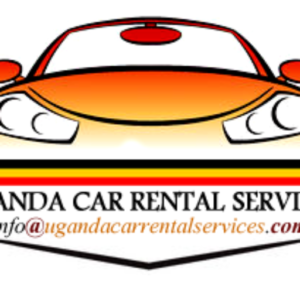
Uganda Car Rental Services has built strong reputation over many years, offering diverse fleet options from economy to luxury vehicles. They provide comprehensive services including camping equipment, GPS devices, and detailed route planning assistance.
Road Trip Uganda specializes in self-drive safari experiences, offering vehicles specifically prepared for Uganda adventures. Their packages often include camping gear, cooler boxes, and detailed park information.
Rent 4×4 Car Uganda focuses on serious adventure vehicles, maintaining fleets of well-equipped 4WDs suitable for challenging conditions. They offer comprehensive briefings and support for adventurous travelers.
Safari Specialists
Self Drive East Africa combines car rental with safari expertise, offering vehicles equipped for wildlife viewing with features like pop-up roofs, binoculars, and field guides. Their staff provides detailed wildlife and park information.
Uganda Car Rental Services offers comprehensive packages including vehicles, accommodation bookings, and route planning services for travelers preferring some organization while maintaining driving independence.
Rental Process and Documentation
Essential Documentation
International Driving Permits remain mandatory for foreign visitors renting cars in Uganda. Obtain these from your home country’s automobile association before traveling, as they cannot be issued while abroad. Valid home country licenses must accompany international permits.
Passport validity requirements include at least six months remaining validity from rental commencement date. Tourist visas can be obtained online through Uganda’s e-visa system or upon arrival at Entebbe Airport, though advance online processing often proves faster and more convenient.
Credit cards provide essential security for rental companies and usually represent the only acceptable payment method for deposits and major rental fees. Ensure sufficient available credit limits, as companies typically place holds for potential damages, additional charges, or extensions.
Rental Agreements and Terms
Carefully review rental agreements before signing, paying special attention to insurance coverage, mileage limitations, fuel policies, and damage assessment procedures. Many companies offer unlimited mileage for longer rentals, while others impose daily limits that could affect extensive touring plans.
Fuel policies vary between companies. Most operate “full-to-full” policies requiring return with full fuel tanks, while others offer pre-purchase options or different arrangements. Understand policies clearly to avoid unexpected charges.
Insurance coverage represents crucial protection for Uganda adventures. Basic Third Party Liability insurance is mandatory, but Collision Damage Waiver (CDW) and Theft Protection provide essential additional coverage. Consider purchasing maximum available insurance for peace of mind, especially for first-time African self-drive experiences.
Age Restrictions and Driver Requirements
Minimum age requirements typically range from 21-25 years, with some companies imposing surcharges for drivers under 25. Maximum age limits occasionally apply, usually around 70 years, though policies vary between companies.
Driving experience requirements often specify minimum periods holding licenses, typically 2-3 years, particularly for 4WD vehicles or luxury options. Some companies require specific 4WD experience for advanced vehicles.
Insurance Options and Protection
Basic Coverage
Third Party Liability insurance, mandatory in Uganda, covers damages to other vehicles, property, or persons in accidents where you’re at fault. This basic coverage doesn’t protect your rental vehicle or personal belongings.
Collision Damage Waiver (CDW)
CDW reduces your financial responsibility for rental vehicle damage, typically eliminating or reducing excess payments for collision repairs. However, CDW often includes exclusions for certain damage types like tire damage, undercarriage damage, or damage from specific activities.
Comprehensive Coverage
Full comprehensive insurance provides maximum protection, covering virtually all potential damage scenarios including theft, vandalism, weather damage, and comprehensive collision coverage. While expensive, comprehensive coverage provides invaluable peace of mind for Uganda adventures.
Personal Effects and Equipment Coverage
Consider additional coverage for personal belongings, camera equipment, or camping gear, as standard rental insurance rarely covers personal items. Travel insurance policies often provide better personal effects coverage than rental car insurance.
Medical and Evacuation Coverage
Ensure adequate medical insurance coverage for Uganda travel, including potential evacuation coverage for serious medical situations. Car rental insurance doesn’t typically include medical coverage, making comprehensive travel insurance essential.
Understanding Costs and Pricing
Daily Rental Rates
Daily rates vary significantly based on vehicle category, season, and rental duration. Economy vehicles typically start around $30-50 per day, mid-size SUVs range $60-100 daily, while luxury 4WDs can exceed $150 daily during peak seasons.
Longer rental periods often qualify for substantial discounts, with weekly and monthly rates providing better value for extended adventures. High season periods (dry seasons) command premium pricing, while wet seasons offer potential savings for flexible travelers.
Additional Fees and Charges
Airport pickup/delivery fees typically range $20-50, though some companies waive these charges for longer rentals. One-way rental fees apply when returning vehicles to different locations, sometimes exceeding $200 for long-distance returns.
Young driver surcharges affect renters under 25, typically adding $10-25 daily to rental costs. Additional driver fees allow multiple licensed drivers, usually costing $5-15 per additional driver per day.
Equipment rental fees include GPS devices ($5-10 daily), camping equipment packages ($20-40 daily), cooler boxes, and other specialized gear. Many companies offer package deals combining vehicles with essential equipment.
Fuel Costs and Consumption
Fuel prices in Uganda fluctuate but typically exceed international averages due to landlocked geography and import dependencies. Budget approximately $1.20-1.50 per liter for gasoline, with diesel usually slightly cheaper.
Fuel consumption varies dramatically based on vehicle type, road conditions, and driving style. Economy vehicles might achieve 12-15 km/liter on highways, while large 4WDs often consume 8-10 km/liter, particularly in challenging off-road conditions.
Deposit Requirements
Security deposits typically range from $500-2000 depending on vehicle value and insurance coverage selected. Companies place credit card holds for deposit amounts, releasing funds upon satisfactory vehicle return. Ensure adequate available credit limits before rental commencement.
Preparing for Your Rental
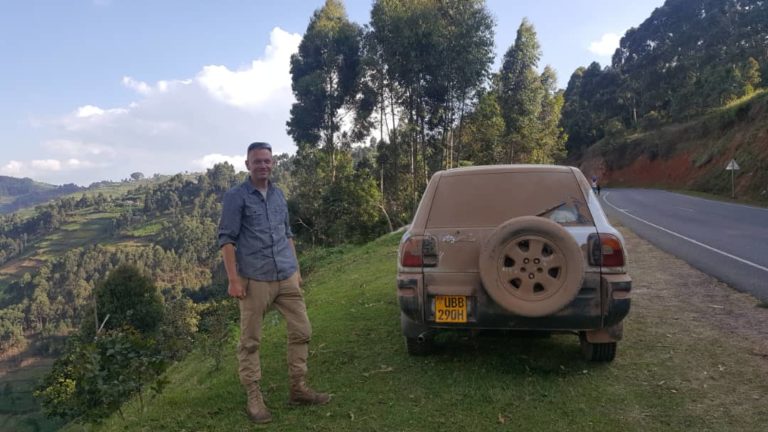
Pre-Rental Research
Thoroughly research rental companies before booking, reading recent reviews and checking company credentials. Look for companies with good maintenance records, reliable customer service, and transparent pricing policies.
Compare total costs rather than just daily rates, as additional fees can significantly impact overall expenses. Request detailed quotes including all anticipated charges for accurate budget planning.
Booking Strategies
Book rentals well in advance, especially for peak season travel or specialized vehicles like luxury 4WDs or camping-equipped options. Early booking often secures better rates and ensures vehicle availability.
Consider booking flexibility, as Uganda weather and road conditions can affect travel plans. Some companies offer free cancellation or modification policies that provide valuable flexibility for changing conditions.
Pre-Departure Preparation
Obtain International Driving Permits well before departure, as processing can take several weeks. Ensure passport validity and arrange Uganda visa requirements through online systems when possible.
Notify credit card companies of Uganda travel plans to prevent transaction blocks. Ensure adequate available credit limits for rental deposits and potential additional charges.
Vehicle Inspection and Handover
Detailed Pre-Rental Inspection
Conduct comprehensive vehicle inspections before accepting rentals, documenting all existing damage with photos and written records. Pay special attention to common damage areas including bumpers, wheel rims, undercarriage, and interior components.
Test all vehicle systems including lights, air conditioning, 4WD engagement, and electronic features. Ensure spare tires are in good condition and all essential tools are present.
Check fluid levels, tire conditions, and general mechanical condition. Don’t hesitate to reject vehicles that appear poorly maintained or show signs of potential reliability issues.
Documentation and Handover Process
Ensure rental agreements accurately reflect vehicle condition and agreed terms. Verify contact information for emergency support and clarify procedures for breakdowns or accidents.
Confirm return procedures, including acceptable return times, fuel requirements, and inspection processes. Understand potential charges for late returns or condition discrepancies.
Essential Equipment Check
Verify presence of essential equipment including spare tires, jacks, basic tools, warning triangles, and first aid kits. Many companies provide additional equipment like jumper cables, tow straps, or camping gear – ensure everything is present and functional.
Test GPS devices or navigation systems if included, and ensure you understand their operation. Confirm phone charger compatibility and check that all promised equipment is present and operational.
Driving in Uganda: What to Expect
Road Conditions and Infrastructure
Uganda’s road network includes excellent tarmac highways connecting major cities and tourist destinations, alongside challenging dirt roads accessing remote areas and some national parks. Recent infrastructure investments have significantly improved major routes, though conditions can deteriorate rapidly during rainy seasons.
Expect varied conditions even on single journeys, from smooth highways to potholed sections, construction zones, and potentially challenging rural roads. Weather significantly impacts road conditions, with heavy rains sometimes making routes temporarily impassable.
Traffic Patterns and Urban Driving
Kampala traffic can be extremely congested, particularly during rush hours (7-9 AM and 5-7 PM). Plan extra time for urban navigation and consider avoiding peak traffic periods when possible.
Rural areas typically offer light traffic with excellent visibility, though sharing roads with pedestrians, cyclists, and livestock requires constant attention and patience.
Navigation and Route Planning
GPS systems work reliably in most areas, though offline maps provide essential backup options. Paper maps remain valuable for overall route planning and areas with limited GPS coverage.
Local knowledge proves invaluable for current road conditions and potential route alternatives. Hotel staff, park rangers, and other travelers often provide crucial real-time information about road conditions and potential challenges.
Safety and Security Considerations
Vehicle Security
Park in secure, visible locations whenever possible, especially overnight. Many accommodations provide secure parking areas, while public areas require greater caution and security awareness.
Never leave valuable items visible in vehicles, even during brief stops. Store cameras, electronics, and other valuables in locked compartments or take them with you when leaving vehicles.
Personal Safety
Travel during daylight hours when possible, particularly on unfamiliar routes or challenging roads. Plan arrival times to avoid night driving in remote areas.
Carry emergency supplies including water, snacks, basic medical supplies, and communication devices. Cell phone coverage reaches most areas, though satellite communicators provide backup options for true emergencies.
Emergency Procedures
Understand breakdown and accident procedures before departing. Most rental companies provide 24-hour emergency support, though response times vary based on location and circumstances.
Carry emergency contact information for rental companies, insurance providers, and local emergency services. Embassy contact information provides additional support for serious situations involving foreign nationals.
Maximizing Your Rental Experience
Route Planning Strategies
Design routes balancing driving distances with exploration time, avoiding excessive daily driving that reduces actual adventure experiences. Uganda’s compact size allows reaching most destinations within reasonable driving times.
Build flexibility into itineraries for spontaneous discoveries, weather delays, or simply extended stays in particularly appealing locations. Rigid schedules often prevent the magical unexpected encounters that make self-drive adventures memorable.
Equipment and Preparation
Pack essential equipment including sunscreen, insect repellent, basic tools, emergency supplies, and appropriate clothing for diverse climates and activities. Uganda’s elevation changes create varying weather conditions requiring preparation.
Consider bringing or renting camping equipment if interested in bush camping or staying in basic accommodations. Many rental companies offer comprehensive camping packages including tents, sleeping bags, and cooking equipment.
Technology Integration
Download offline maps and navigation applications before departing, as internet connectivity can be limited in remote areas. Consider GPS devices as primary navigation with smartphone apps as backup systems.
Power banks and vehicle charging adapters ensure devices remain functional throughout adventures. Many modern vehicles include USB charging ports, though external adapters provide backup options.
Common Mistakes to Avoid
Documentation Errors
Failing to obtain International Driving Permits before departure represents the most common and easily preventable mistake. These cannot be issued while abroad and are mandatory for legal driving in Uganda.
Insufficient passport validity or visa complications can derail rental plans. Ensure documentation meets all requirements well before departure dates.
Insurance Oversights
Inadequate insurance coverage can result in massive financial exposure for accidents, theft, or damage. Consider maximum available coverage for peace of mind, particularly for first-time African self-drive experiences.
Misunderstanding insurance terms, exclusions, or procedures can create problems during claims processes. Read insurance documentation carefully and ask questions about coverage limitations.
Vehicle Selection Mistakes
Choosing inappropriate vehicles for intended routes can severely limit adventure potential or create safety issues. Economy cars are unsuitable for serious park exploration or challenging roads.
Overestimating driving capabilities or underestimating route difficulties can create dangerous situations. Be honest about experience levels when selecting vehicles and planning routes.
Environmental and Cultural Responsibility
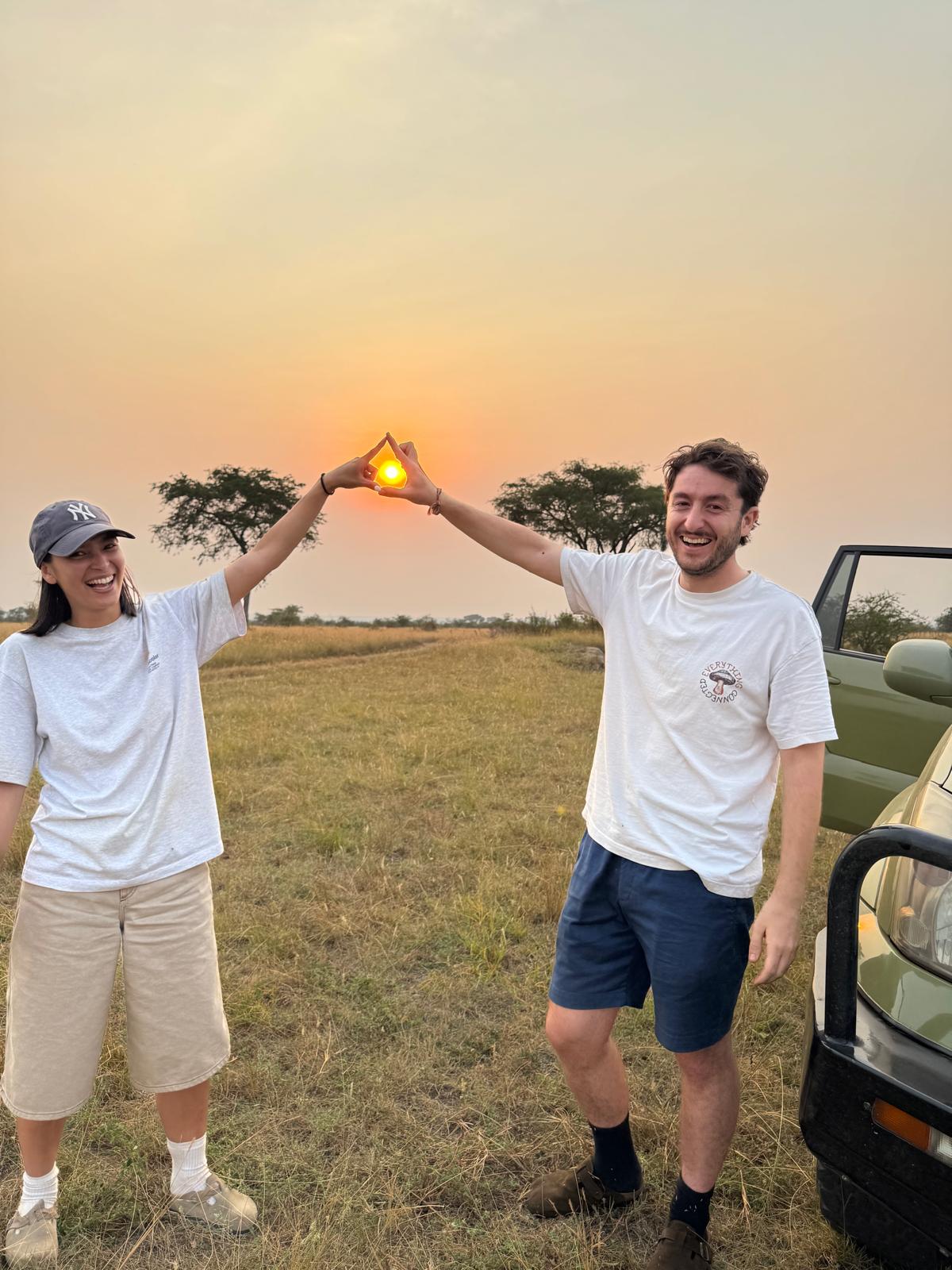
Sustainable Tourism Practices
Choose rental companies demonstrating environmental responsibility through vehicle maintenance, fuel efficiency focus, or carbon offset programs. Well-maintained vehicles produce fewer emissions and consume less fuel.
Practice Leave No Trace principles throughout your journey, particularly in national parks and rural areas. Proper waste disposal becomes crucial in areas with limited infrastructure.
Cultural Sensitivity
Respect local customs, traditions, and photography preferences throughout your journey. Ask permission before photographing people and be prepared to offer small payments for photos in tourist areas.
Support local communities through purchases, meals, and accommodation choices that directly benefit local people rather than large international corporations.
Wildlife and Conservation Ethics
Maintain appropriate distances from wildlife and never attempt to feed or interact with wild animals. Your rental vehicle provides excellent wildlife viewing opportunities while maintaining safe distances.
Support conservation efforts through entrance fees, responsible tourism choices, and selecting accommodations that contribute to local conservation programs.
Conclusion: Your Ugandan Adventure Awaits
Renting a car in Uganda opens doors to one of Africa’s most diverse and rewarding adventure destinations. From the freedom to explore at your own pace to the cost savings and authentic cultural encounters, car rental transforms Uganda visits from passive tours into active adventures.
Success requires preparation, appropriate vehicle selection, comprehensive insurance, and realistic expectations about driving conditions and capabilities. However, thousands of travelers have discovered that Uganda’s roads lead to experiences that organized tours simply cannot match.
Whether you’re drawn by mountain gorillas in Bwindi’s misty forests, thundering Murchison Falls, the adventure capital of Jinja, or simply the warm hospitality of Ugandan people, your rental car becomes the key to unlocking authentic African adventures.
The roads are calling, the adventures await, and your Ugandan journey begins the moment you turn the ignition key. Rev up your Uganda adventure – the Pearl of Africa is ready to reveal its secrets to those bold enough to explore independently.
To book a self drive or driver-guided adventure in Uganda- simply contact us now by sending an email to info@ugandacarrentalservices.com or call us now on +256-700135510 to speak with the reservations team.
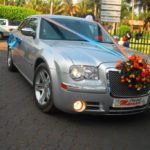
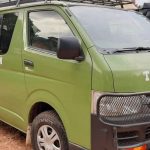
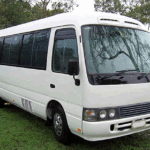
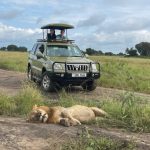
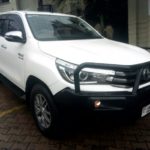
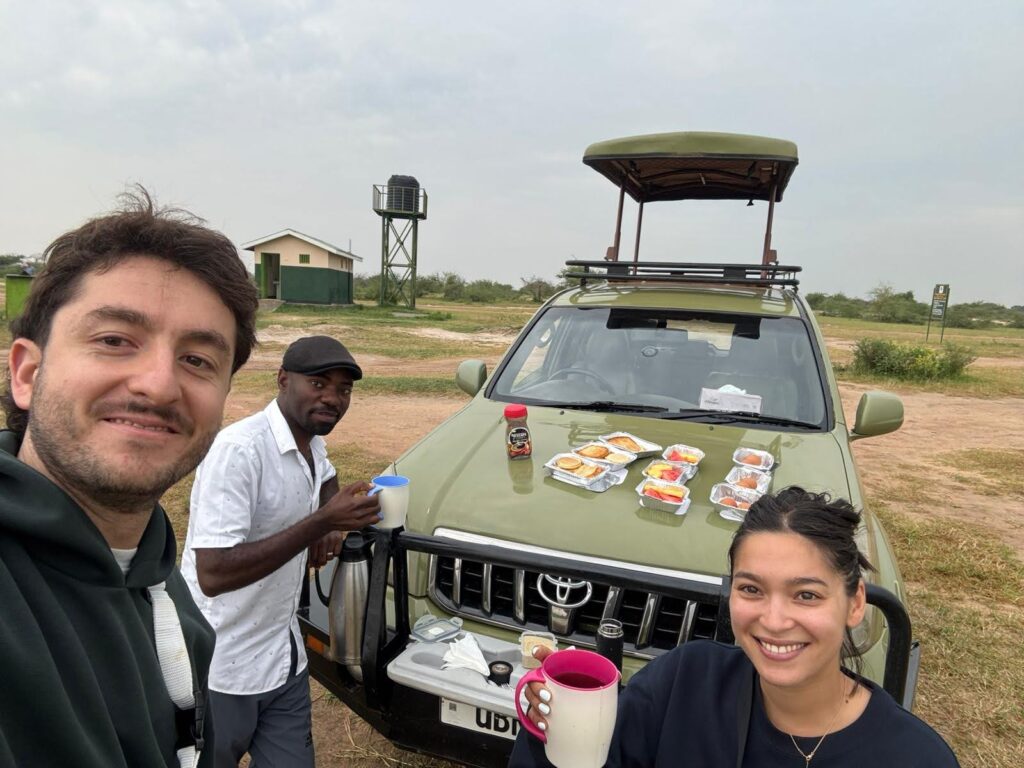
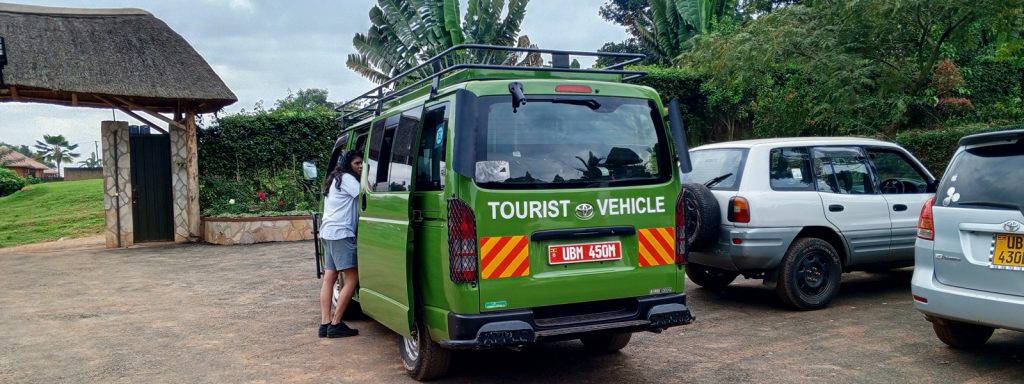
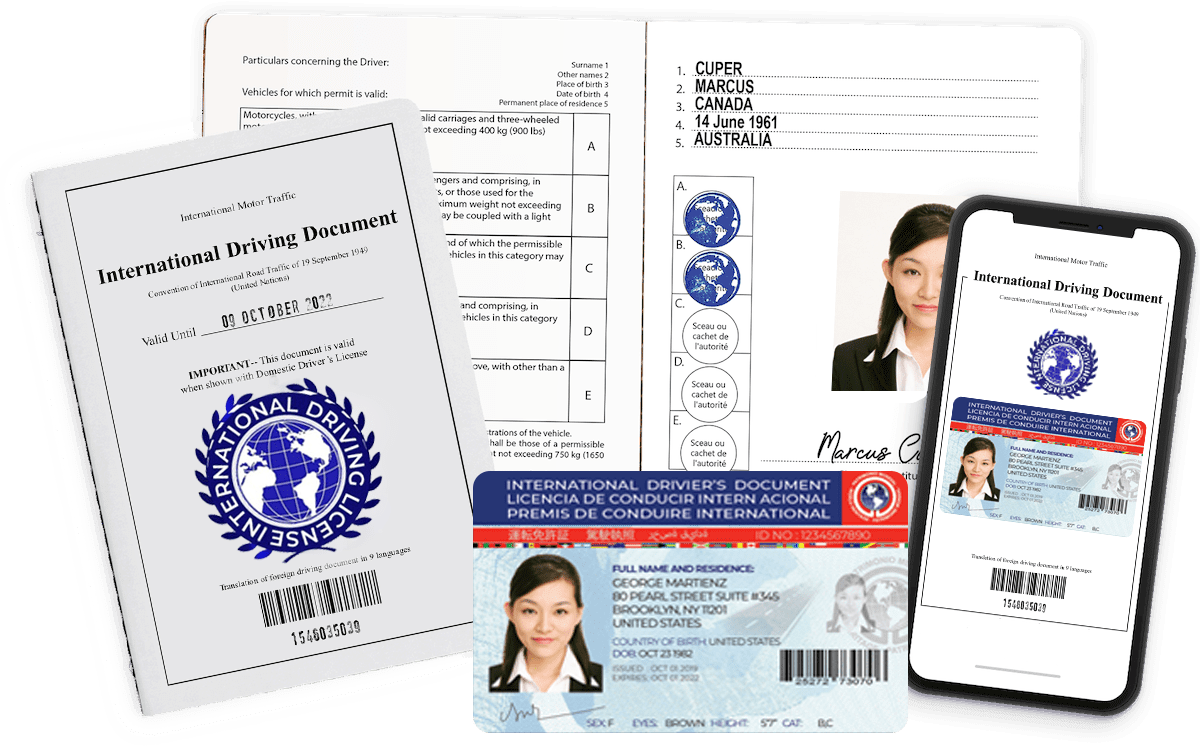
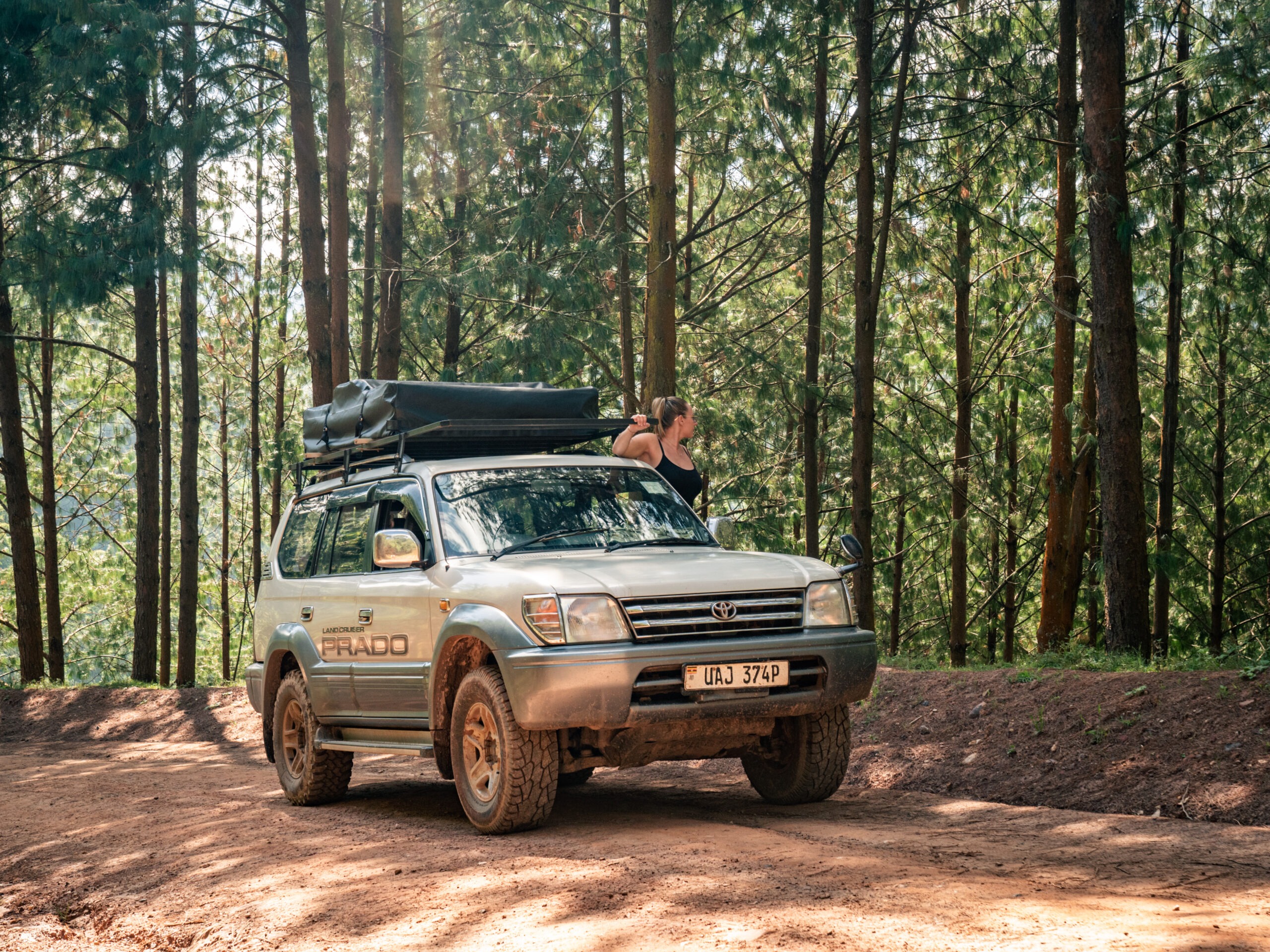
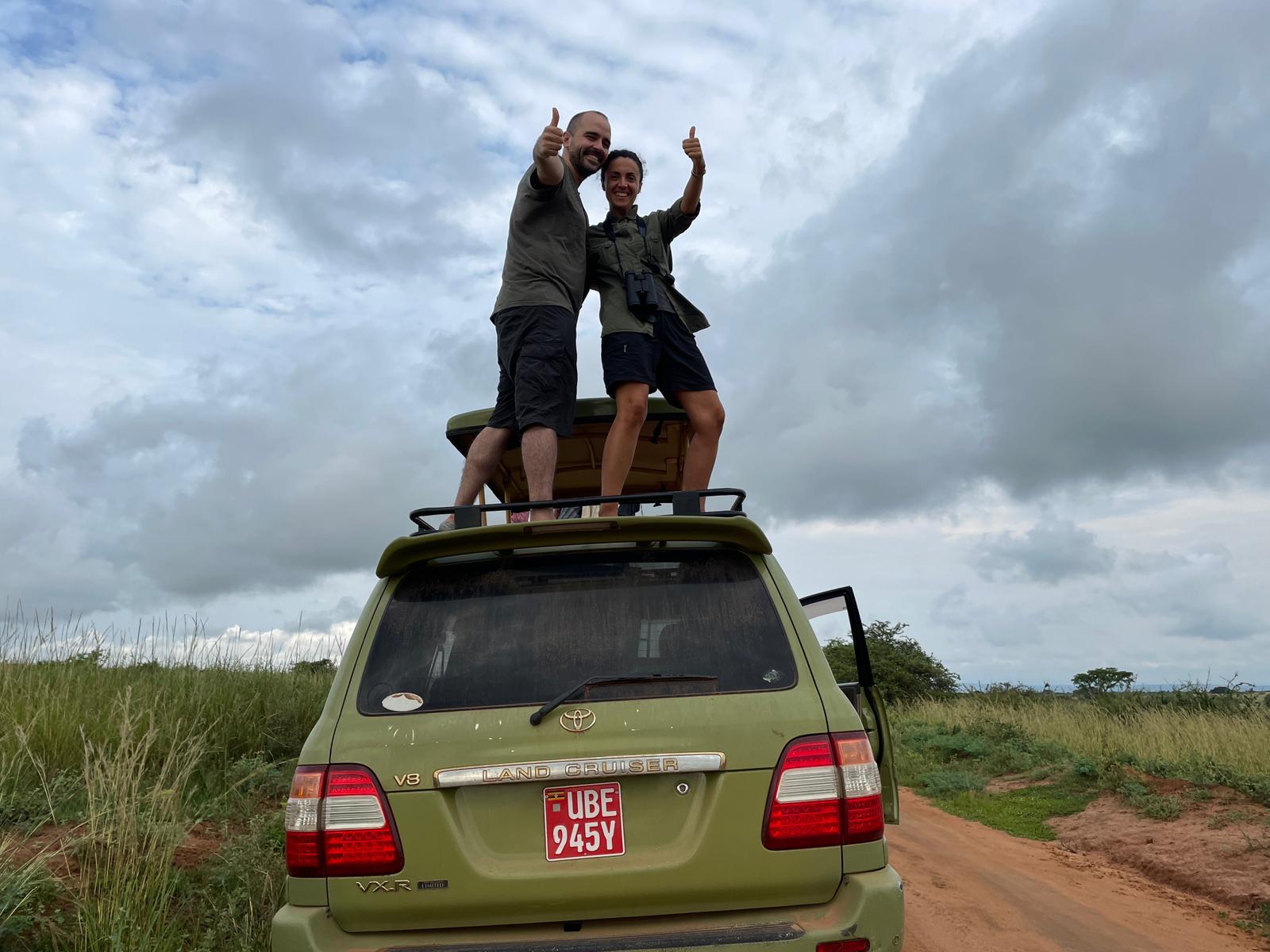
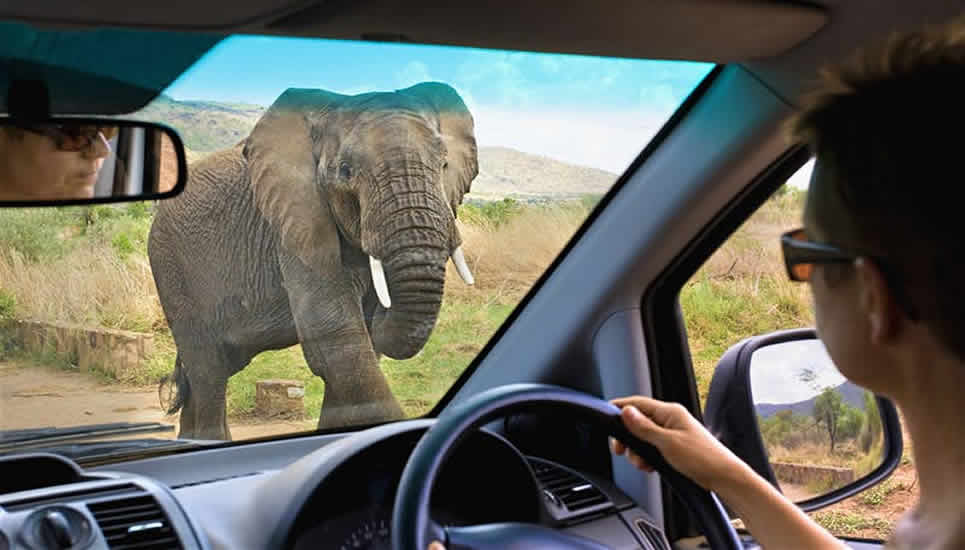
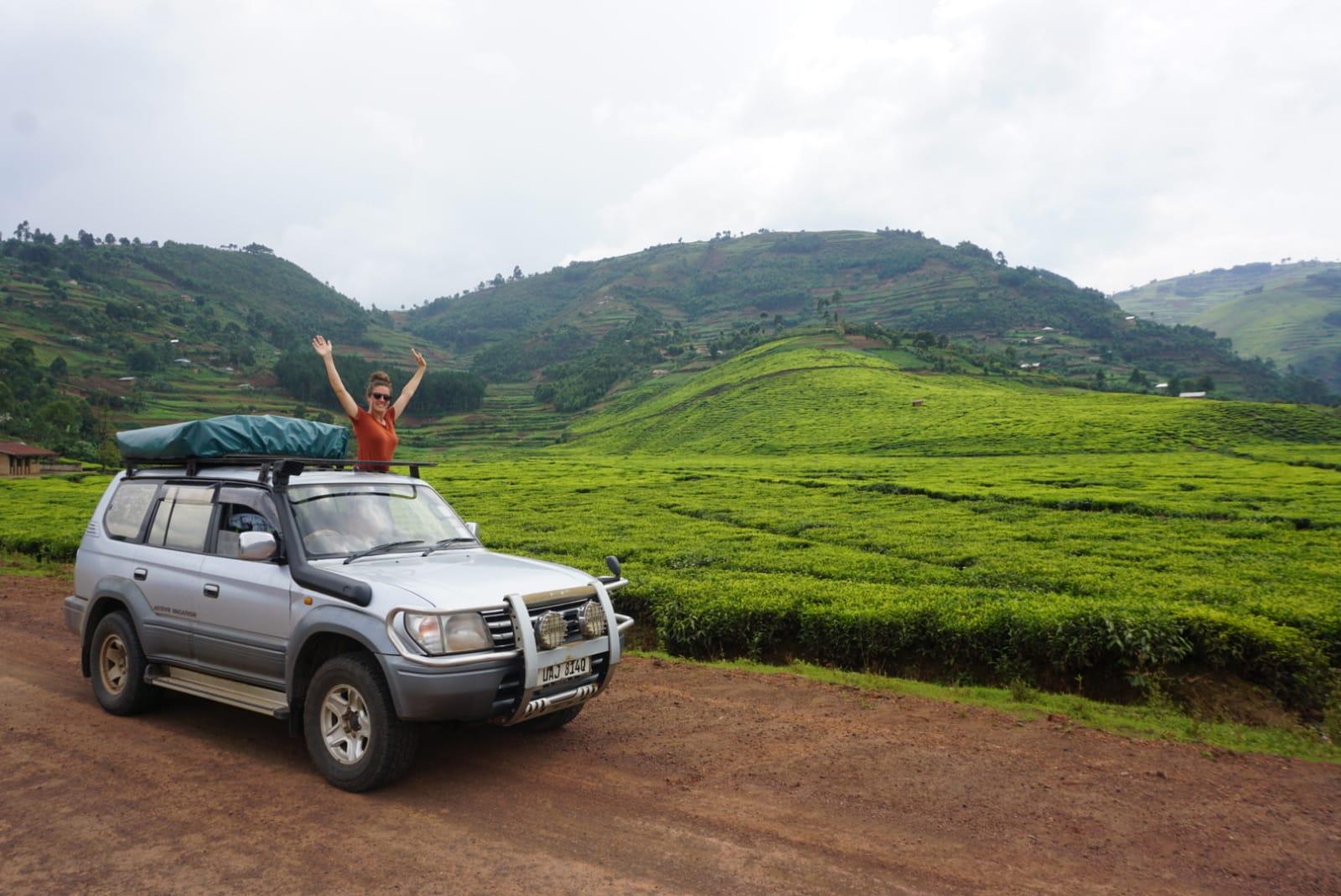

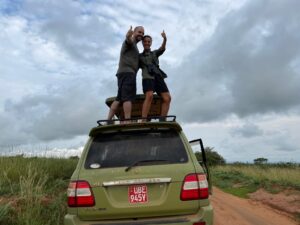
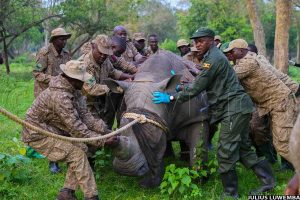

Related Articles
A USA Traveler’s Guide to Uganda’s Vibrant Street Life
Frequently Asked Questions About Uganda Car Hire Locations
Christmas Season Greetings from Uganda Car Rental Services